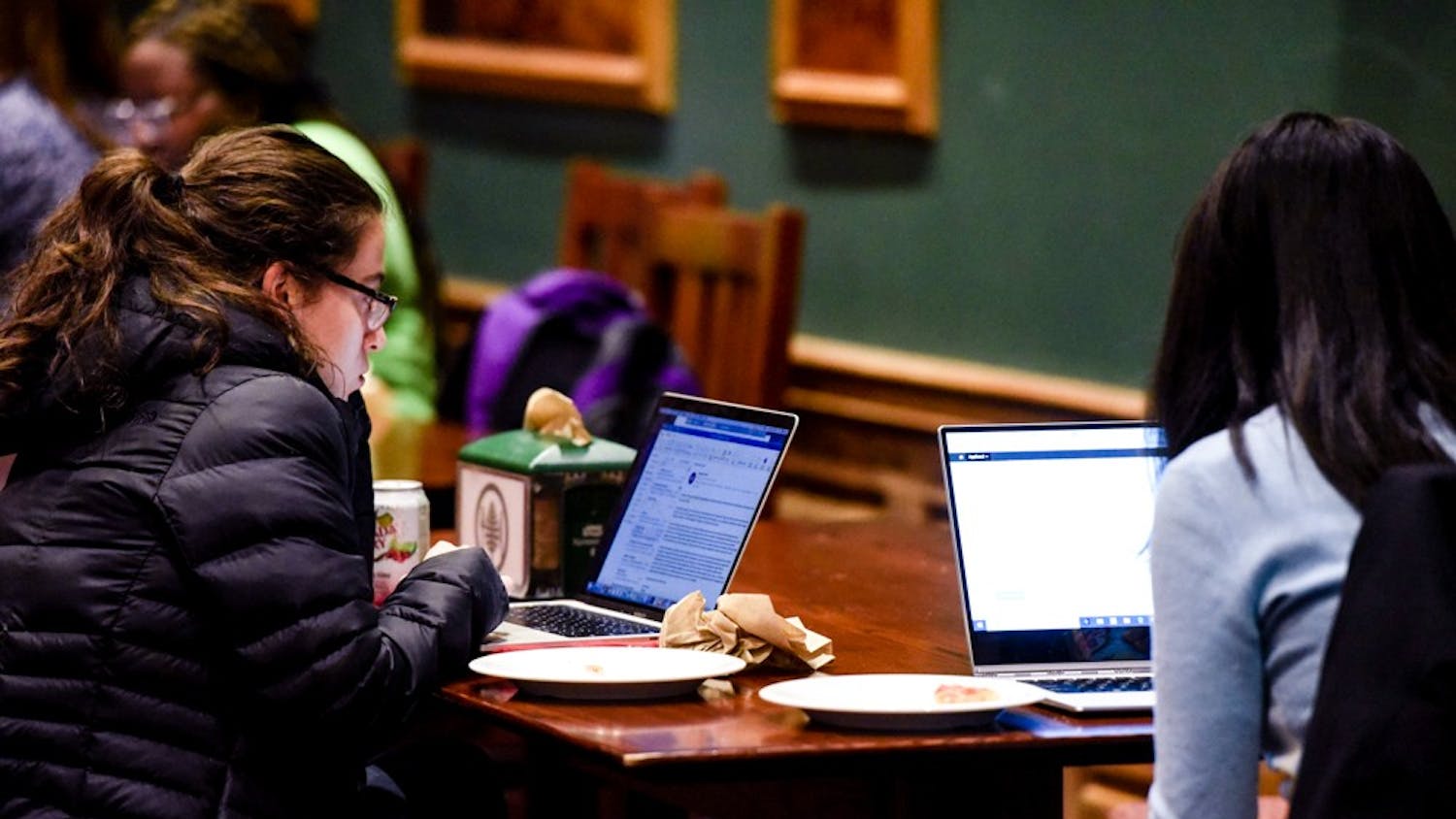On April 4, The New York Times featured the article “College Made Them Feel Equal. The Virus Exposed How Unequal Their Lives Are,” written by Nicholas Casey. Casey juxtaposed the lives of two students studying at Haverford College, one who “sat at a vacation home on the coast of Maine,” and the other who had to “keep her mother’s Puerto Rican food truck running.” I applaud Dartmouth’s decision to make spring term credit/no credit to accommodate students who, like the New York Times story pointed out, must work a job or care for their family. However, social class and alleviated academic pressure aside, the online learning experience has not measured up to Dartmouth’s traditional classroom setting.
Spring term began, unsurprisingly, with a common technological problem all Dartmouth students face: a perpetually-broken enrollment system. I anxiously logged into my portal when it was supposed to open at 12 a.m., found that the site was down and refreshed the page for an hour and a half before giving up. I woke up at 8 a.m. the next day to find that almost every class I wanted was full. The portal had opened at 5:30 a.m. As the Jack-O-Lantern phrased it, the College’s “virtual system [was] unable to handle [a] transition to [a] virtual system.”
Through broken cameras and faulty microphones, glitchy Wi-Fi and frozen screens, students have tried their best. There’s definitely been a learning curve. My Chinese professor does not know how to screen share, so he writes characters on a sheet of paper and holds it in front of the camera — we don’t have the heart to tell him we can’t see anything. Other students have reported that they have been unable to access certain course materials, such as lectures uploaded to the online video platform TechSmith Relay.
Online schooling has also reminded me that homes are less-than-ideal learning environments. Although many of my friends — in a normal term — study in cafes or the library, I enjoy the utter silence of my dorm room. Between the squirrels scampering in the attic, my brother screeching on his violin and the 9:30 a.m. garbage truck rounds, I consistently find myself annoyed, distracted or unproductive.
Not only are my family members loud, but they are nosy. I often find one of my brothers peering through the crack in the door to see if my Mandarin has improved. My mother has barged into my Zoom lecture to tell me the latest news on the coronavirus. And my father grills me after my PSYC 07.02, “Brain Evolution” seminar to see if I was paying attention. “Diana, what is the function of the hypothalamus? What part of the brain is involved in memory use? Name all the structures in the brain.” OK, dad.
However, the hardest part about online learning is how impersonal it feels. This term, I am taking two asynchronous classes, which means that lectures are pre-recorded. Despite the occasional office hour, I will never get to know my professors well. Earlier this term, I had to drop an asynchronous anthropology course because I felt insignificant in a class of over 300 students. Even the professors that do teach synchronous courses — such as my first-year seminar — recommend that we stay on mute for the majority of the class.
As I scrolled down Unmasked, a mental health app for Dartmouth students, I realized that I have only touched the surface of some of the problems with online schooling. Some students say they lack motivation (“it took everything in me to get out of bed”); they are lonely (“miss being around people and studying with friends”); they don’t have necessary resources (have to drive “to get signal for the portable modem”); they fear for the safety of loved ones (“my grandpa has the virus”).
Although these circumstances aren’t preferable, they’re non-negotiable — we need to keep the Dartmouth and Hanover community safe. We have to adapt to our new learning environment by using headphones, finding a study buddy, checking in with friends and altering our study schedules. Quarantine has shown me the importance of the aspects of life that I take for granted, making me long for and better appreciate Dartmouth. When I return to Dartmouth next winter, I plan to maximize every moment by treating my Chinese professor to Pine, taking ENGS 12, “Design Thinking,” tackling the sunrike and never again complaining about trekking across the Green to get to class.
Correction appended (April 18, 2020): A previous version of this article indicated that the "Brain Evolution" course was number PSYC 171. This article has been updated to reflect that said course is actually numbered PSYC 07.02.



